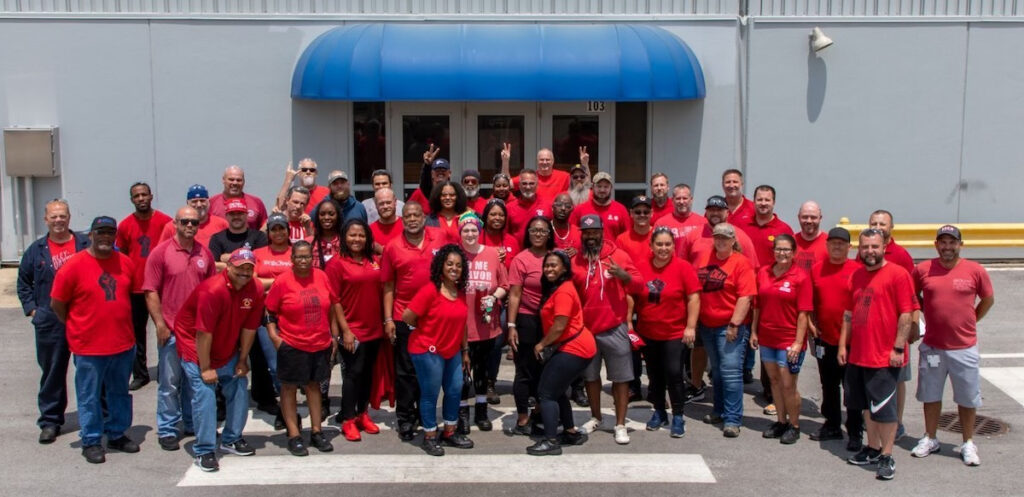This article was adapted from Luis Feliz Leon’s in Labor Notes and published in the March 2024 edition of UAWD’s newsletter, Members Voice. Read the full newsletter here.
1,500 autoworkers in Indianapolis made their New Year’s resolution public: unless Allison Transmission agreed to eliminate tiers in wages, benefits, shift premiums, and holidays, they would hit the bricks. Local 933 members there hadn’t struck since the 1970s. But in December, they rejected Allison’s offer by 96%.
Workers clinched a new contract in the nick of time—by presenting a clear picture of what would happen if they walked. Allison could have lost millions a day in revenue, taken a reputational hit, and lost customers. And even if it tried bringing in scabs, the truck drivers who deliver transmissions to customers wouldn’t cross the picket line. Some were Teamsters; others at Ryder Logistics were fellow UAW Local 933 members.

Rank-and-file member Monica Nelson and Local 933 VP Andy Davis began organizing gate meetings on Red Shirt Wednesdays, every other week, to update members on the progress in negotiations, answer questions, and make sure people were united behind the demand to end tiers.
Members ratified their new contract by 82% on January 16. It hikes starting wages from $14.72 to $20 an hour and increases some workers’ earnings by 150%, and eliminates most aspects of the tiers.
The agreement adds annual “income protection payments,” rising from $1,000 in the first year to $1,800 in year four, as part of a hybrid cost-of-living adjustment.
All workers will receive a 5% bump for the second shift and a 10% premium for the midnight shift. Under the old contract, even the shift differential had tiers.
They won two weeks of paid parental leave, a $7,000 ratification bonus, and Juneteenth as a paid holiday.
The union didn’t win pensions, but the company agreed to an 8% match on 401(k) contributions. Around 300 traditional legacy employees, meaning people hired before 2008, got an increase to their pension to $59.45 by contract end. That’s on top of a 401(k) matched at 3%.
Since the Great Recession, workers had seen their pay and benefits erode. The company introduced tiers in wages and benefits around 2008, eliminating a fully funded pension. It introduced a third tier of health insurance in 2019, putting new hires on a health savings account maxed at $750 for an individual and $1,500 for a family, and a health plan with a deductible of $11,900 for a family. Legacy workers only had to pay for their copays. Second-tier workers hired after 2008 were paying a $75 monthly premium and $2,000 out-of-pocket max as part of a preferred provider organization. The new contract eliminates the third tier, moving everyone from the HSA onto the PPO. Legacy employees kept their fully funded health insurance.

